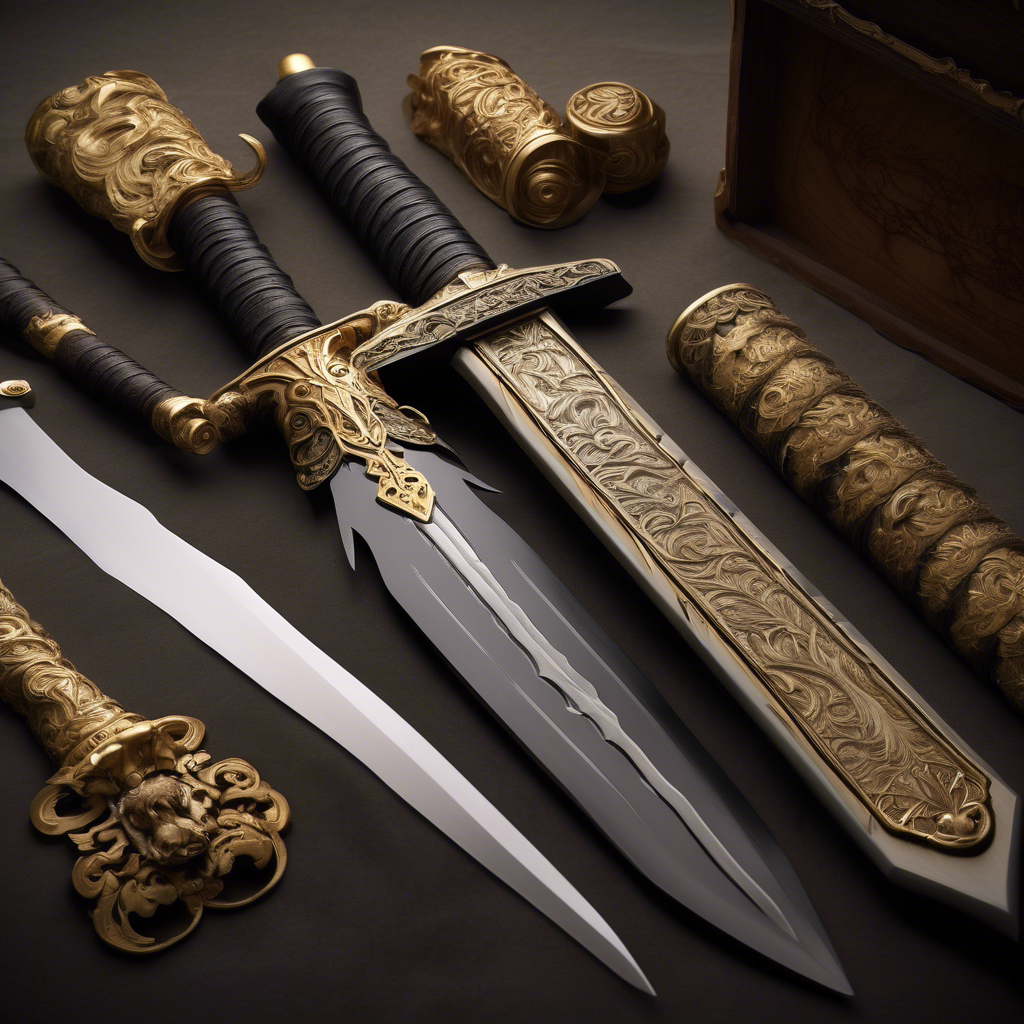
The invention of swords is a significant milestone in human history, shaping the way wars were fought, societies were governed, and cultures interacted. The history of swords dates back to ancient times, with evidence suggesting that they were first created in the Middle East around 3300 BC. From there, swords spread to Europe, Asia, and Africa, becoming a staple weapon in warfare and a symbol of power and prestige.
The invention of swords revolutionized the way battles were fought, providing soldiers with a more effective and versatile weapon than traditional tools like spears and bows. Swords allowed for quick and precise strikes, giving warriors a strategic advantage on the battlefield. As a result, the use of it became widespread, with different regions developing their own unique styles and techniques.
One of the earliest known swords is the Egyptian khopesh, a curved blade with a sharpened edge used by the ancient Egyptians for both ceremonial and military purposes. The khopesh was not only a formidable weapon in battle but also a symbol of status and authority. In Europe, the Celtic tribes crafted their own swords, such as the leaf-shaped blades known as the La Tène sword. It were often ornately decorated with intricate designs and symbols, reflecting the artistic and cultural values of the Celtic people.
The impact of swords on society was far-reaching, influencing not only warfare but also governance and social structure. In many ancient civilizations, the possession of a sword was a sign of nobility and power, with rulers and warriors wielding them as a symbol of their authority. The development of swordsmanship as a martial art further emphasized the importance of it in shaping the social hierarchy.
Before the invention of swords, warfare was often fought with rudimentary weapons like clubs and rocks. The introduction of it changed the dynamics of conflict, leading to more organized and strategic battles. Soldiers trained in swordsmanship became respected members of society, often serving as bodyguards or elite warriors for rulers and nobles.
The inventor of the sword is unknown, as the development of it was likely a gradual process that evolved over time. However, the craftsmanship and innovation involved in creating swords demonstrate the ingenuity and skill of ancient artisans. It were made from various materials, such as bronze, iron, and steel, each offering different levels of durability and sharpness.
The history of swords is a testament to human ingenuity and adaptability, with different cultures and civilizations contributing to their evolution. The impact of it on world history cannot be overstated, as they played a crucial role in shaping the course of wars and conflicts throughout the ages. The legacy of swords lives on today in the form of ceremonial weapons, historical artifacts, and martial arts disciplines that continue to honor their historical significance.
[…] Before the discovery of gunpowder, battles were fought using primitive weapons such as spears, swords, and bows and arrows. However, with the introduction of guns and cannons powered by gunpowder, […]